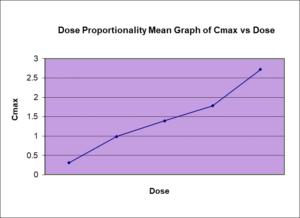Smart Database Design at the Center of Accelerated Trial Times

There is a lot of talk about accelerating trial times, and how to deal with missed timelines and delayed milestones, a concern shared by all stakeholders in clinical trials. Many, in the end costly, issues that keep coming up again and again could be avoided from the onset by paying more attention to the importance of solid database design.
In many ways the quality of database design influences not only study timelines and data quality, but the outcome, even the ultimate relevance of clinical trials. While database design is often pushed to the sidelines in the quest for moving a trial along as quickly as possible, it is crucial to remember the importance of great database design as a critical basic building block.
Naturally, sponsors want to start clinical studies quickly, want their first subject visit as soon as possible and need the database to be ready at the earliest date. Having the database up and running as fast as possible allows sponsors more time to prepare sites and ensures that their study does not run into delays from the onset, and can start at the desired date. It is in fact achievable to finalize quality database design within four to five weeks, significantly accelerating trials, resulting in big savings of sponsors’ time and financial resources.
To a large part, accelerated trial times stand and fall with the quality of Clinical Trial Data Management. It is essential to remember that if done well, Clinical Trial Data Management is so much more than simply collecting data electronically, cleaning it to match the source document, and sending it off to the next department. “Done well” means not losing track of why things are being done the way they should be done. “Done well” means to take a step back in order to take a look at the larger picture, and understanding the integral part database design plays at the center of outstanding Clinical Trial Data Management.
Outstanding Clinical Trial Data Management starts with database design, right from the beginning. A thorough understanding of the study protocol is the basis, the complete study team must have all their questions clarified and understand the purpose of the study. They must consult with all other involved departments to ensure that everyone is on the same page, and the system captures the data it needs to.
The database should then be designed with a focus on making the job of the “next person” easier. Who will be the “next person” using the database? Issues and delays usually arise if departments work in isolation, or the reality in the clinic, at the site, is different from anticipated.
It starts with site staff and data entry staff, who should find it easy to collect data and enter it into the database. The database should be as user-friendly as possible, with all related data on the same page, for example. Built-in edit checks should prevent a host of potential data entry errors, again aiding in the acceleration of trial times.
During the last few years, eSource has moved into the spotlight, and is fast becoming the most valuable tool for data collection and accelerating trial times due to skipping the entire data transcription process. It is a great development, improving both data quality and accuracy, as well as increasing speed of data collection while at the same time decreasing error rates with the help of in-app logic checks. It should be kept in mind though that eSource is only as good as the underlying database design. If the database design behind the scenes is flawed, even the most up-to-date eSource technology will produce flawed results.
Data collection and entry is followed by data review, which should again start with checking if the study purpose is being achieved. What are the data trends, what is the meaning behind the data collected, and how is the data quality? To prevent delays down the road, any noted irregularities should be addressed at the earliest possible, at the database design level, before large amounts of data are either collected or entered incorrectly. Query management should not wait until for example 25 – 30% of the data has been collected, but start immediately, by working closely with the site.
Another “next person” is the STDM programmer involved in the clinical trial. Smart database design should produce STDM-friendly raw data, since according to FDA standards all raw data, no matter what Electronic Data Capture system (EDC system) was used, must be mapped under Study Data Tabulation Model standards (SDTM standards).
Problems with database design should not be ignored and simply passed on to the STDM programmer. All data should be captured in a way that will ultimately save the STDM programmer time. Once again, accelerated trial times start with solid database design. One example would be setting up the case report form in grid format (if allowed by the EDC system). It is a small thing if done during the database design process, but will allow data to be exported as normalized data, ultimately adding a lot of value to the outcome.
Accelerated trial times rely to a large part on smart database design. The Clinical Trial Data Management group/EDC programmer should take pride in the fact that smart database design is one of the core building blocks of a successful clinical study. A CRO’s goal of handing over a quality clinical study to the sponsor in a timely manner, from data capture in the clinic to delivery of the final data package, rests heavily on the DM team’s ability to achieve quality database design.
Muhammad Bilal
Senior Director, Clinical Data Operation
BioPharma Services Inc.
Popular Posts
-
What are early phase clinical trials?
Clinical Trials are divided into 4 phases. Phase 1 and 2 trials constitute early phase trials, Phase 3 and 4 research studies are late-phase trials.
The primary objective of Phase 1 studies is to determine the correct drug dosage by evaluating drug safety and determining if there are any side effects. Phase 1 trials are conducted in healthy volunteers.
Phase 2 studies also study the safety of a drug but focus on evaluating its effectiveness. These studies can be conducted in healthy volunteers or in individuals who have a certain disease or condition.
-
What is a clinical trial?
A Clinical trial is a process which is performed to determine whether an investigational drug, device or therapy is safe and effective. In early phase research (i.e. Phases 1 and 2), the safety and effectiveness of the drug will be evaluated in healthy volunteers.
-
What is an investigational drug?
An investigational drug can also be called an experimental drug and is being studied to see if your disease or medical condition improves while taking it. Scientists are trying to prove in clinical trials:
- If the drug is safe and effective.
- How the drug might be used in that disease.
- How much of the drug is needed.
- Information about the potential benefits and risks of taking the drug.
-
Why do you need to take blood draws and how many blood draws will be required?
In order to evaluate the drug profile, we need to understand its pharmacokinetics. This is essentially how the body reacts to a drug after its administration through the mechanisms of absorption, distribution, as well as the metabolic changes. Therefore, blood draws are collected at various time points to better understand this mechanism. Each study requires a specific number of blood draws and total blood volume. These values will be provided to you and clearly stipulated in the informed consent form (ICF). The amount of blood that will be taken is outlined in the ICF.
-
Should I expect to experience any side-effects while doing studies?
As every study is testing an investigational product, there may be side effects. You will be provided with a list of side effects that have been reported in previous trials (if any), so you can make an informed decision whether or not to participate in the trial. During the trial you will be required to immediately inform clinic study staff of any adverse effects that you are experiencing. These side effects usually resolve upon discontinuation of the study drug.
-
Will I be compensated for doing a clinical study?
Volunteers are compensated and the amount varies depending on the length of the clinical trial, length of stay and number of follow-up visits. The compensation is not specifically related to the risks or type of drug involved in the trials or studies. Every study is different and therefore, the compensation will vary. Study volunteers may receive between $1000 to $4000 for a trial (based on the factors listed above).
-
Are food and accommodation provided over the course of the trial?
Food – Clinical trials are conducted in a controlled setting which means that all food is provided and trial volunteers receive standardised meals. Individual meal plans or meal preferences cannot be provided. If you have any food allergies or hypersensitivity to food product(s) that are clinically significant or life-threatening you may not be able to participate in a trial. Please contact us to discuss any food issues.
Accommodation – During your in-clinic stay you will share sleeping areas with other volunteers who are of the same gender. Similar to a hospital setting, supervision will be provided to ensure that your health and safety are being monitored.
-
What is the length of a study and do I have to complete all the visits?
Details of the duration of a study can be found on the Volunteer Hub.
-
What is informed consent and how is it carried out?
Before you decide whether or not to take part in a clinical research study, you will be required to read and understand the information provided in an Informed Consent Form (ICF). The ICF describes the clinical research study and the nature of the investigational product to be used, including:
- Your rights and responsibilities as a study participant.
- What you will be asked to do during study participation.
- The potential risks that you should be aware of.
During this process, you will have the opportunity to discuss and ask questions related to the conduct of the clinical research study with the study doctor/ study staff. You are under no obligation to participate and your decision to take part in a clinical trial is voluntary.
-
Can I bring my own device?
Yes, we encourage you to bring items that will help to pass the time while you are in the clinic. You can use the time to study or work or catch up on the movies you’ve been meaning to watch.
-
What do I need to pack?
Wondering what to pack before your site visit? Visit our Packing List page to learn more.
-
When do I receive compensation for taking part in a study?
You will receive compensation as outlined during the Informed Consent process. Typically, you will receive compensation once all study visits have been completed. If, for any reason, you do not complete all study visits, your compensation will be on a pro-rated basis (i.e. for the time that you have participated in the trial)
-
Where will I sleep during the clinical study?
We provide a clean, safe socially distance sleeping environment, in a dormitory of hotel room style. Watch video
-
Can I bring my own food?
All aspects of clinical trials are closely monitored including the food and drink consumed by participants. While you are in the clinic, you will be provided with all meals as per the study guidelines. You will need to eat all the food provided to ensure the guidelines are met. Watch video
-
Privacy
We respect and value the privacy of our volunteers. View our Privacy and Cookie Policy here.



